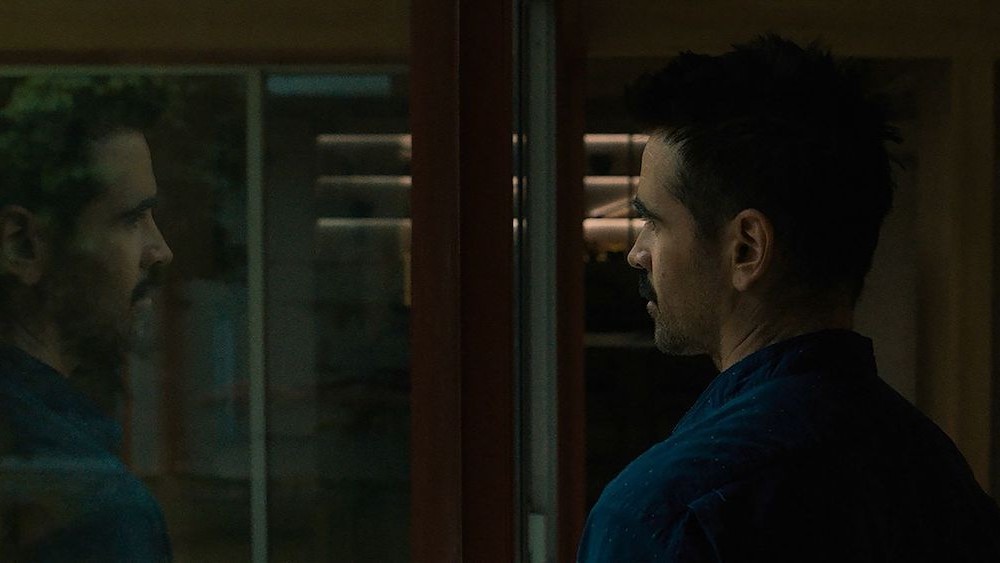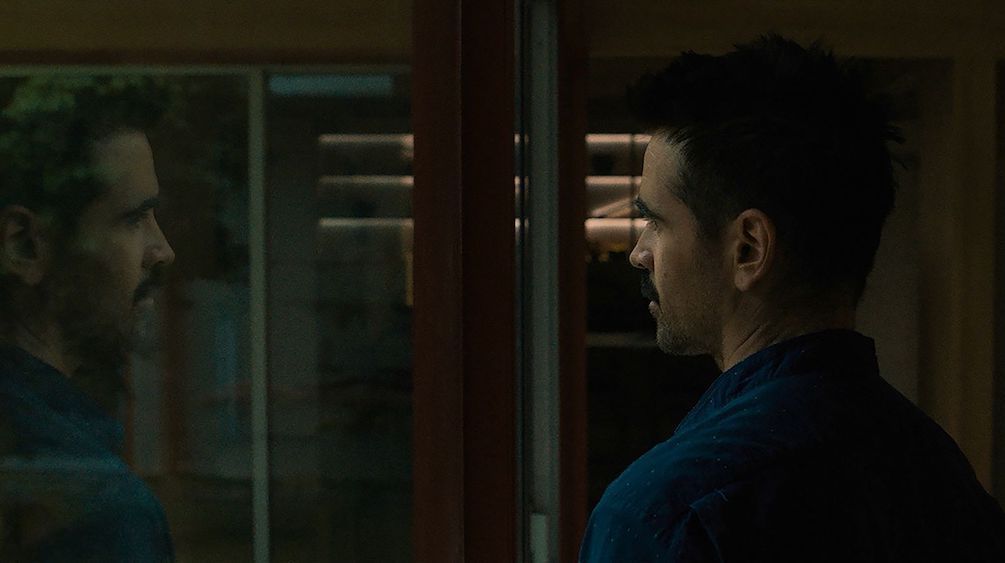Our review of ‘After Yang’ was first published as part of our Sundance Film Festival 2022 coverage.
Where to watch: Now playing in select theaters and on Showtime.
With his gifted eye for aesthetics, Kogonada’s films are among the most arresting in movies today. His ability to compose beautifully designed, richly crafted shots of environments and the people who inhabit them, makes his films visually and singularly special. Add to that, his inclination as a storyteller to explore deeply meditative stories that reflect on the meaning of life, and you’ll find that watching a film by Kogonada is a truly transcendent experience. What’s crazy about that high praise is that he’s only made two feature films to date: 2017’s Columbus, and now, After Yang.
It might give you pause to wonder how a person who’s only made two movies in his life could make them so artistically accomplished. However, those who know Kogonada’s story also know that, prior to directing, his professional career consisted of creating video essays, whose excellence elevated the importance and recognition of the entire medium as an art form itself.
Understanding and showcasing the filmmaking methods of cinema’s greats is no doubt what also made his first feature, Columbus, so refined and such a praiseworthy debut. Here, with his even more ambitious second feature After Yang, it’s exciting to see him expand his artistic talents by entering a world of highly conceptual sci-fi that visualizes even more complex worlds with even deeper questions to ponder.
Making its world premiere at last year’s Cannes Film Festival, but now making its North American premiere at this year’s Sundance Film Festival, After Yang is set in the future in which humans exist alongside artificially intelligent androids, whose self-aware sentience now force humans to confront their own lives; and with that, their shortcomings.
Adapted from a short story by Alexander Weinstein (“Saying Goodbye to Yang”), After Yang tells the story of a beautiful–but at first glance, curiously diverse–family, whose connection we’ve yet to understand. We learn that Jake (Colin Farrell) and Kyra (Jodie Turner-Smith) are parents to an adopted Chinese daughter, Mika (Malea Emma Tjandrawidjaja). The last one to run into the framing of a self-timed family photo is the techno-sapien, Yang (Justin H. Min).
Yang’s inclusion in the family is part of society’s larger trend in which parents buy “Second Siblings,” autonomous robots that are able to provide companionship as well as a cultural history of their adopted children’s heritage to them. Wise and thoughtful, Yang also provides philosophical guidance to Mika, helping her better understand her own adoption, in one instance likening her to a branch that’s been grafted onto a tree to create new life. In this respect, Mika’s connection with Yang is uniquely special. So, when Yang abruptly stops functioning, it throws Mika into disarray. Jake takes Yang to a third-party worker, and when Yang is examined, a discovery leads to shock: a piece of technology is found to allow Yang to create memories from his life.
Kogonada uses Jake’s studying of Yang’s memories (visualized as gorgeously glowing web-like stars in the sky) to reflect upon how much he’s lost touch with his own family, and the special moments he’s overlooked in his own life. Montages of these fleeting moments from Yang’s point of view–daylight spilling in through a window, leaves nestling in the wind, nature in its most simple and beautiful form–are beautifully lensed by cinematographer Benjamin Loeb (When You Finish Saving the World). Similar to Pixar’s Soul, the mundane moments are seen as the real magical moments of life.
It’s here, within the reviewing of these temporal, fragile memories that Kogonada puts forward his deepest questions and philosophical statements. I can’t stop thinking about one such scene between Yang and Kyra, in which, as they discuss the temporality of life, Yang wisely quotes Lao Tsu, saying “what the caterpillar calls the end, the rest of the world calls a butterfly.”
A moving score from ASKA, as well as an additional theme composed expressly for the film by Oscar-winning legend Ryuichi Sakamoto, add even more beauty to After Yang. Kogonada’s masterfully crafted second feature film examines life’s deepest questions on the grandest level of life. What’s more, we also see Kogonada reflect on his own Asian ancestry, which also allows the audience to question our own identities through understanding our ancestry.
The performances throughout the film are all emotionally felt. Each of the actors’ scenes, including Colin Farrell, Jodie Turner-Smith, Justin H. Min, and Haley Lu Richardson, all resonate deeply in their tender honesty. They convey a tranquil serenity to Kogonada’s gorgeously created world, while also expressing such deeply felt feelings like grief, loss, and the fear of life’s finiteness.
While you’ll have to slow yourself down to its patient, slow-burning pace, it left my heart swelling, eyes tearing, and soul transcending. After Yang is a deeply beautiful, profound, and amazing achievement from Kogonada that will make you look at your world and life with a little more wonder after.
96 minutes.
Ryan Rojas
Ryan is the editorial manager of Cinemacy, which he co-runs with his older sister, Morgan. Ryan is a member of the Hollywood Critics Association. Ryan's favorite films include 2001: A Space Odyssey, The Social Network, and The Master.


